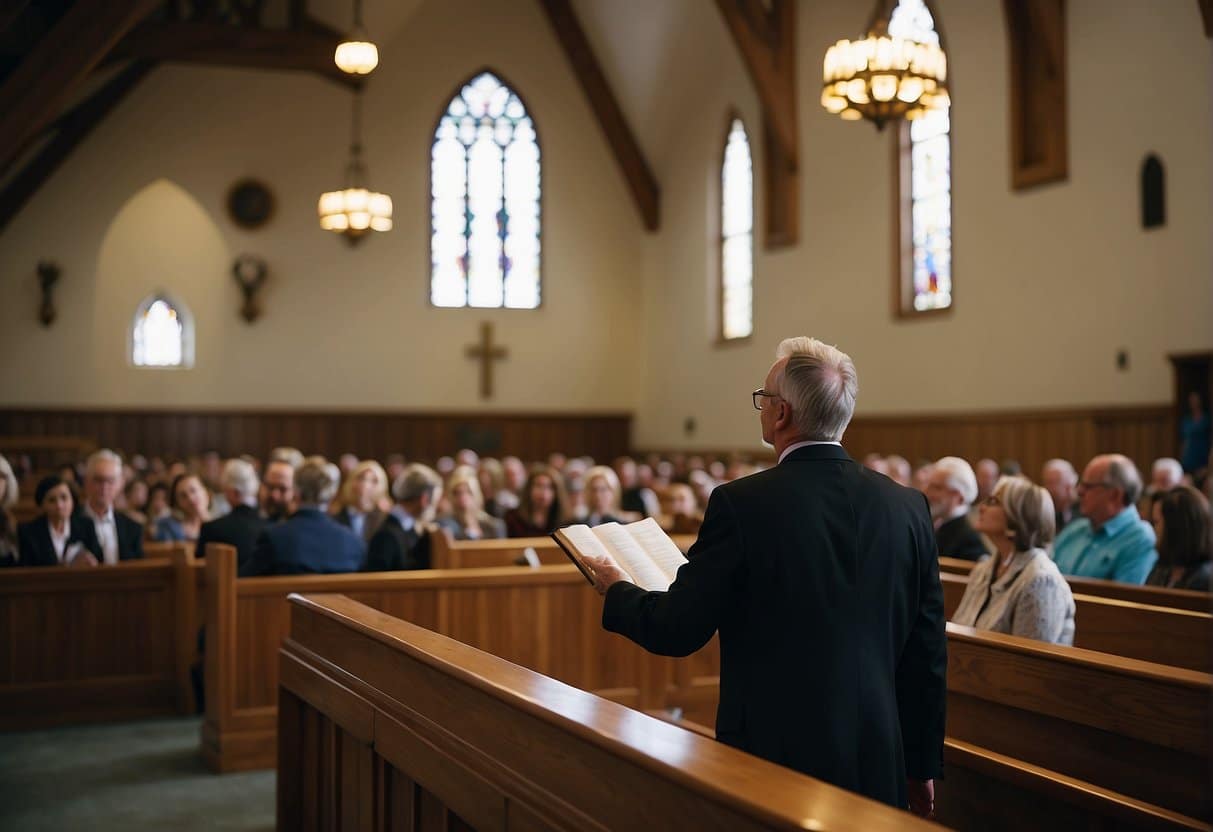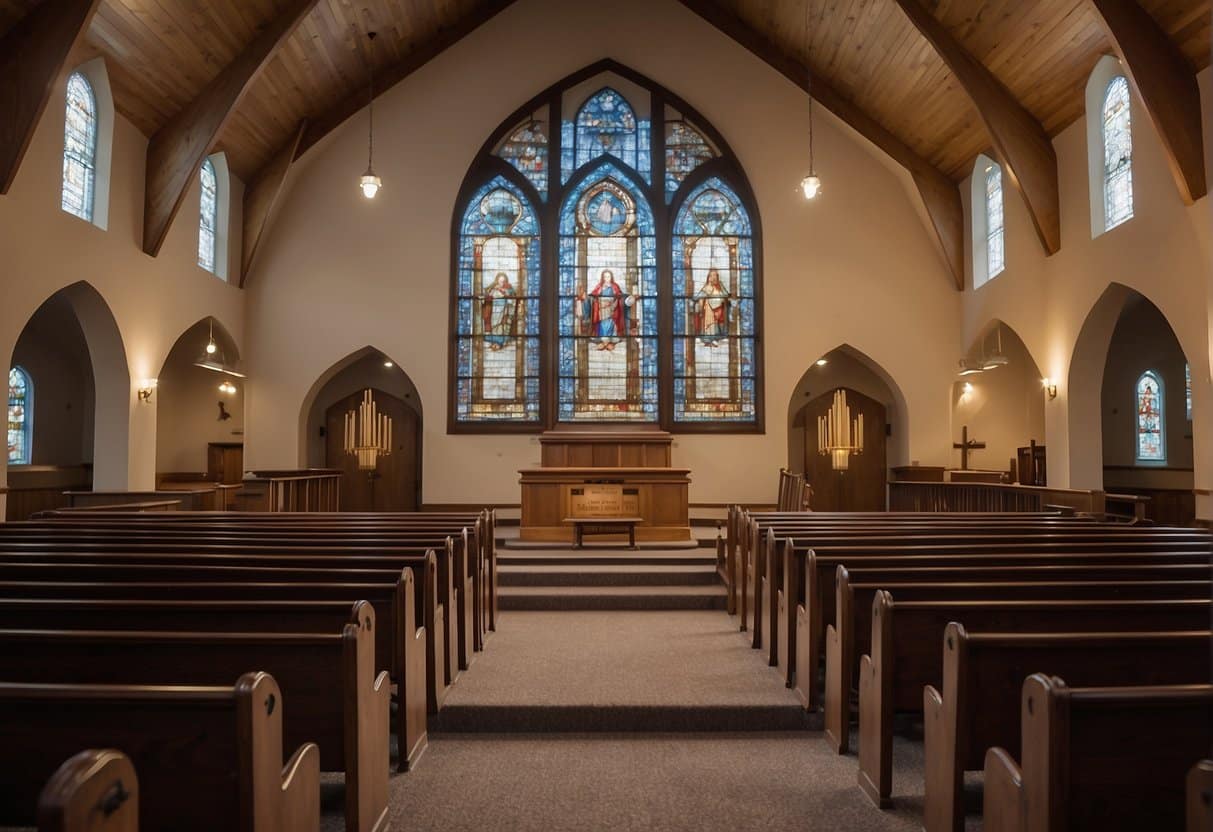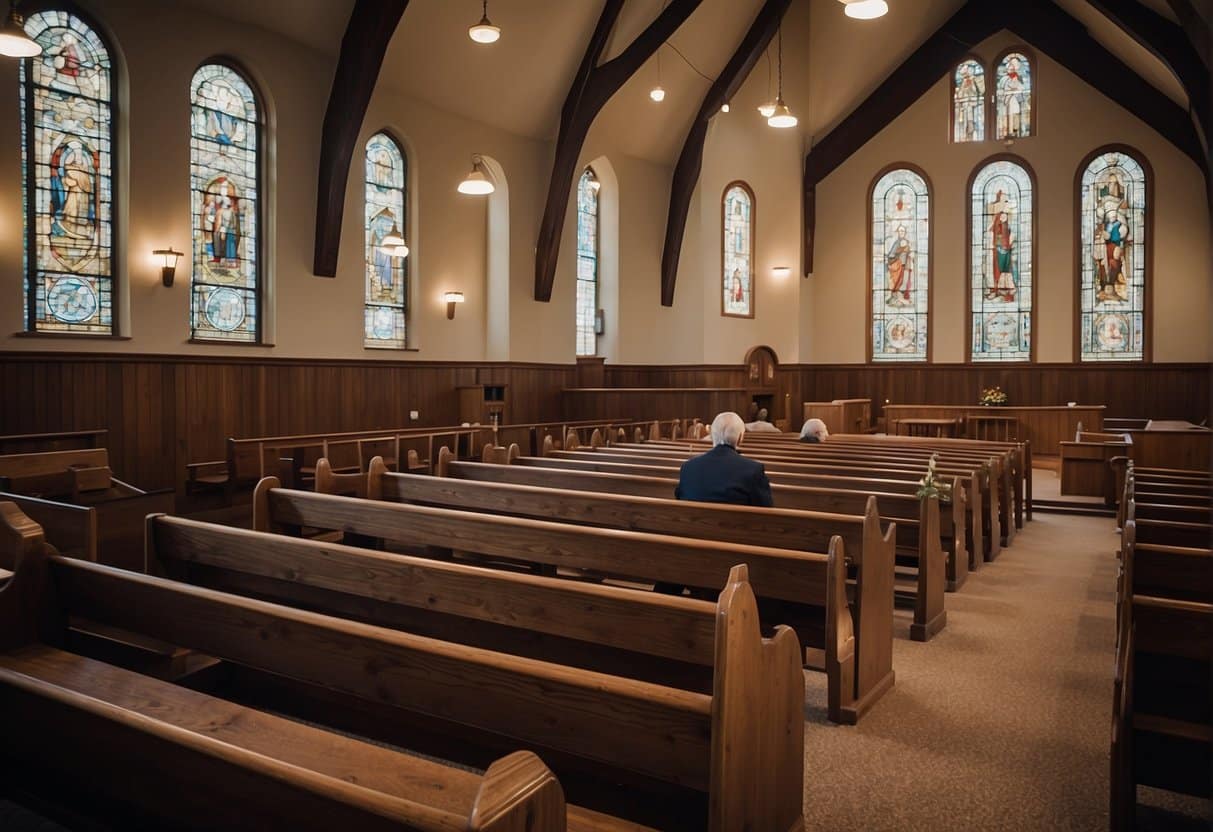Many have asked me what is Presbyterian religion all about. Well, today I plan to shed light on the Presbyterian faith, exploring its principles and practices that have prompted much curiosity.
As one of the largest branches of Christianity, Presbyterianism has a rich history and unique beliefs that set it apart from other denominations.
At its core, Presbyterianism is a faith centered on the sovereignty of God and the authority of scripture.

Presbyterians accept one God who is all-powerful, all-knowing, and all-loving.
They also believe that Jesus Christ is the son of God and the savior of the world. One of the distinctive features of Presbyterianism is its emphasis on the concept of predestination, which holds that God has already chosen who will be saved and who will not.
This belief is based on the idea that God is all-knowing and has a plan for each person’s life.
Presbyterianism has a long history, dating back to the 16th-century Protestant Reformation. The name “Presbyterian” comes from the Greek word “presbyteros,” which means “elder.”
This reflects the Presbyterian belief in a system of church government that is led by a group of elders rather than a single pastor or bishop. If you’re interested in learning more about the Presbyterian religion, read on to discover its unique beliefs and practices.
History and Background of Presbyterian Religion
Presbyterianism is a branch of Protestant Christianity that originated in the 16th century.
This section will provide an overview of the historical background of the Presbyterian religion, including its origins, key figures, reformation, schisms, global spread, and influence.
Origins and Key Figures
The origins of Presbyterianism can be traced back to John Calvin, a French theologian who played a key role in the Protestant Reformation.
Calvin’s teachings emphasized the sovereignty of God, the authority of scripture, and the importance of predestination.
His ideas were influential in shaping the theology of many Protestant denominations, including Presbyterianism.
Another key figure in the development of Presbyterianism was John Knox, a Scottish reformer who studied under Calvin in Geneva.
Knox returned to Scotland and led the Scottish Reformation, which established Presbyterianism as the dominant religion in Scotland.
Reformation and Schisms
The Protestant Reformation, which began in the 16th century, was a period of religious upheaval that led to the establishment of many new Christian denominations, including Presbyterianism.
The Reformation was a response to the perceived corruption and abuses of the Roman Catholic Church, and it emphasized the importance of individual faith, scripture, and the priesthood of all believers.
Over time, Presbyterianism has experienced several schisms and divisions. In the United States, for example, the Presbyterian Church split into two separate denominations in the mid-19th century: the Presbyterian Church in the United States and the Presbyterian Church in America.
These divisions often reflect differences in theology, practice, and culture.
Global Spread and Influence
Today, Presbyterianism is a global religion with millions of followers around the world. The Church of Scotland, for example, is the national church of Scotland and has a significant presence in North America, Ireland, and England.
Presbyterianism has also influenced other Christian denominations, such as the Congregationalist and Reformed churches.
Presbyterianism has had a significant impact on the development of Western culture and society. Its emphasis on individual faith, scripture, and the priesthood of all believers helped to shape the democratic ideals of the United States and other Western nations.
Presbyterian history is rich and complex, and its influence continues to be felt in many areas of contemporary life.
Core Beliefs and Doctrines

Presbyterianism is a branch of the Reformed tradition of Christianity that emphasizes the sovereignty of God, the authority of the Scriptures, and the importance of faith in Jesus Christ for salvation.
Here are some of the core beliefs and doctrines of the Presbyterian faith.
Theology and Salvation
Presbyterians believe that God is sovereign over all of creation and that human beings are sinful and in need of salvation.
They believe that salvation comes through faith in Jesus Christ and that it is a gift of God’s grace, rather than something that can be earned through good deeds or moral behavior.
Presbyterians also acknowledge in the resurrection of the dead and in the final judgment of all people.
Bible and Confessions
Presbyterians believe that the Bible is the inspired Word of God and the ultimate authority for Christian faith and practice.
They also uphold the importance of confessions of faith, such as the Westminster Confession of Faith and The Book of Confessions, as detailed expressions of their beliefs.
Worship and Sacraments
Presbyterians believe in the importance of corporate worship as a means of praising God, receiving instruction through the teachings of God’s Word, and enjoying fellowship with other believers.
They practice two sacraments: baptism and the Lord’s Supper (also known as communion).
Baptism is seen as a sign and seal of God’s covenant of grace, and communion is seen as a commemoration of Christ’s sacrifice on the cross and a means of spiritual nourishment for believers.
Church Governance Inside Religion

Presbyterianism is a form of church government that is characterized by the rule of assemblies of presbyters or elders.
It is a representative form of government where the congregation elects elders to represent them at higher levels of the church.
Presbyterian Polity
The Presbyterian Church is governed by a system of church hierarchy known as Presbyterian Polity. This system is based on the idea that the church is governed by representative assemblies of elders. These assemblies are responsible for making decisions on behalf of the church.
Roles and Ordination
In the Presbyterian Church, there are two ordained offices: elder and deacon. Elders are responsible for the spiritual oversight of the church, while deacons are responsible for the physical needs of the church. Both elders and deacons are ordained by the church and serve for a specific term.
Assembly and Synod
The Presbyterian Church is organized into different levels of assemblies. The lowest level is the session, which is made up of the elders of a local congregation. The next level is the presbytery, which is made up of the elders and ministers of a group of congregations.
The highest level is the General Assembly, which is made up of representatives from all of the presbyteries.
The Synod is a regional governing body that is responsible for overseeing the work of the presbyteries within a specific geographic region.
The Synod is made up of representatives from the presbyteries within that region.
The Book of Confessions is a collection of creeds and confessions that are used by the Presbyterian Church. It is a statement of the church’s beliefs and is considered to be a standard of faith and practice.
Presbyterianism in Society
Presbyterianism has had a significant impact on society throughout history.
This section will explore two areas where Presbyterianism has influenced society: education and democracy, and missionary work and revivals.
Education and Democracy
Presbyterianism has a strong tradition of promoting education. Some of the earliest universities in America, such as Princeton and the University of Pennsylvania, were founded by Presbyterians.
This emphasis on education reflects the Presbyterian belief that knowledge and reason are important components of faith.
Presbyterianism has also played a role in the development of democracy. The Presbyterian form of church government, which is based on representative assemblies of elders, has been seen as a model for democratic government.
This form of government has influenced the development of democracy in America, particularly in Virginia and Philadelphia.
Missionary Work and Revivals
Presbyterianism has a long history of missionary work, both domestically and internationally.
This work has included efforts to establish new churches, provide education and medical care, and support social justice causes.
Presbyterianism has also been associated with religious revivals, particularly in the 18th and 19th centuries. These revivals, which were characterized by emotional preaching and intense religious experiences, had a significant impact on American society.
They helped to shape the religious landscape of America and were an important precursor to the development of the modern evangelical movement.
Modern Challenges and Adaptations
As with any religion, Presbyterianism has faced modern challenges and has had to adapt to changing times.
Ecumenism and Interfaith Relations
One challenge that Presbyterianism has faced is the issue of ecumenism and interfaith relations. As a Reformed tradition within Protestantism, Presbyterianism has historically been focused on maintaining its own distinct beliefs and practices.
However, in recent years, there has been a growing movement towards greater cooperation and dialogue between different Christian denominations and even with other faiths.
The Presbyterian Church (USA), for example, has been involved in numerous interfaith initiatives, including partnerships with Jewish and Muslim organizations. Additionally, many Presbyterian congregations have participated in ecumenical worship services with other Christian denominations.
While some within the Presbyterian community have expressed concern about these developments, many others see them as a positive step towards greater understanding and cooperation between different faiths.
Contemporary Issues and Schisms
Another challenge that Presbyterianism has faced in recent years is the issue of contemporary social and political issues.
As with many other denominations, there are often disagreements within the Presbyterian community on issues such as LGBTQ+ rights, abortion, and immigration.
These disagreements have sometimes led to schisms within the denomination, with some congregations choosing to break away and form their independent churches.
One notable example of such a schism occurred in the 1970s when the Presbyterian Church in America (PCA) was formed as a breakaway group from the Presbyterian Church (USA) over theological and social issues.
More recently, the issue of LGBTQ+ rights has been a source of controversy within the Presbyterian Church (USA), with some congregations choosing to leave the denomination over its more liberal stance on LGBTQ+ issues.
Despite these challenges, however, Presbyterianism continues to be a vibrant and dynamic tradition within Protestantism.
With its emphasis on the authority of Scripture, the sovereignty of God, and the gospel of grace, Presbyterianism remains a vital part of the Reformed tradition and an important voice within the broader Christian community.
Conclusion
To say it simply what is Presbyterian religion: It is a Protestant Christian denomination rooted in the Reformed tradition, characterized by a distinctive governance system that emphasizes the leadership of a body of elders, both lay and ordained.
It upholds a theology centered on the sovereignty of God, the authority of the Scriptures, and the necessity of grace through faith in Christ.
